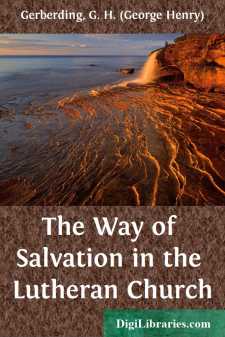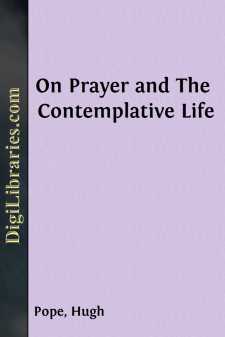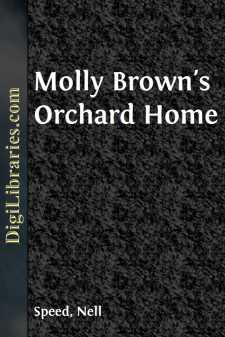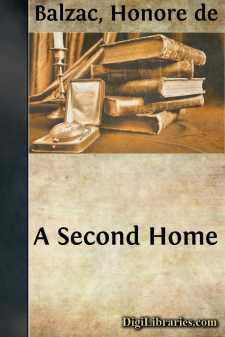Categories
- Antiques & Collectibles 13
- Architecture 36
- Art 48
- Bibles 22
- Biography & Autobiography 813
- Body, Mind & Spirit 142
- Business & Economics 28
- Children's Books 17
- Children's Fiction 14
- Computers 4
- Cooking 94
- Crafts & Hobbies 4
- Drama 346
- Education 46
- Family & Relationships 57
- Fiction 11829
- Games 19
- Gardening 17
- Health & Fitness 34
- History 1377
- House & Home 1
- Humor 147
- Juvenile Fiction 1873
- Juvenile Nonfiction 202
- Language Arts & Disciplines 88
- Law 16
- Literary Collections 686
- Literary Criticism 179
- Mathematics 13
- Medical 41
- Music 40
- Nature 179
- Non-Classifiable 1768
- Performing Arts 7
- Periodicals 1453
- Philosophy 64
- Photography 2
- Poetry 896
- Political Science 203
- Psychology 42
- Reference 154
- Religion 513
- Science 126
- Self-Help 84
- Social Science 81
- Sports & Recreation 34
- Study Aids 3
- Technology & Engineering 59
- Transportation 23
- Travel 463
- True Crime 29
Sort by:
CHAPTER I. ALL ARE SINNERS. Some time ago we overheard from a person who should have known better, remarks something like these: "I wonder how sinners are saved in the Lutheran Church?" "I do not hear of any being converted in the Lutheran Church," and such like. These words called to mind similar sentiments that we heard expressed long ago. More than once was the remark made in our...
more...
The scout stood where three roads cut three green tunnels in the pine woods, and met at his feet. Above his head an aged sign-post pointed impartially to East Carver, South Carver, and Carver Centre, and left the choice to him. The scout scowled and bit nervously at his gauntlet. The choice was difficult, and there was no one with whom he could take counsel. The three sun-shot roads lay empty, and the...
more...
CHAPTER FIRST A WAVE OF IMPROVEMENT Pleasant Street was regarded by the Terrace as merely an avenue of approach to its own exclusive precincts. That Pleasant Street came to an end at the Terrace seemed to imply that nothing was to be gained by going farther; and if you desired a quiet, substantial neighborhood,—none of your showy modern houses on meagre lots, but spacious dwellings, standing well...
more...
by:
Hugh Pope
INTRODUCTION The pages which follow call for little introduction. S. Thomas has left us no formal treatise on Mystical Theology, though his teachings on this subject have been collected from his various works and combined to form such a treatise. Especially noteworthy is the work of the Spanish Dominican Valgornera. No such synthesis has been attempted here. We have simply taken from the Summa...
more...
by:
Alexander Whyte
APPRECIATION AND INTRODUCTION The Religio Medici is a universally recognised English classic. And the Urn-Burial, the Christian Morals, and the Letter to a Friend are all quite worthy to take their stand beside the Religio Medici. Sir Thomas Browne made several other contributions to English literature besides these masterpieces; but it is on the Religio Medici, and on what Sir Thomas himself calls...
more...
by:
Abraham Merritt
CHAPTER I For two months I had been on the d'Entrecasteaux Islands gathering data for the concluding chapters of my book upon the flora of the volcanic islands of the South Pacific. The day before I had reached Port Moresby and had seen my specimens safely stored on board the Southern Queen. As I sat on the upper deck I thought, with homesick mind, of the long leagues between me and Melbourne, and...
more...
THE WONDER OF LIFE(From His Science Primer, Introduction.)By . Every one has seen a cornfield. If you pluck up one of the innumerable wheat plants which are fixed in the soil of the field, about harvest time, you will find that it consists of a stem which ends in a root at one end and an ear at the other, and that blades or leaves are attached to the sides of the stem. The ear contains a multitude of...
more...
by:
Nell Speed
LETTERS. From Miss Molly Brown of Kentucky to Miss Nance Oldham of Vermont. Chatsworth, Kentucky. My dearest Nance: Our passage to Antwerp is really engaged and in two weeks Mother and I will be on the water. I can hardly believe it is I, Molly Brown, about to have this "great adventure." That is what Mother and I call this undertaking: "Our great adventure." Mother says it sounds Henry...
more...
by:
Honore de Balzac
A SECOND HOME The Rue du Tourniquet-Saint-Jean, formerly one of the darkest and most tortuous of the streets about the Hotel de Ville, zigzagged round the little gardens of the Paris Prefecture, and ended at the Rue Martroi, exactly at the angle of an old wall now pulled down. Here stood the turnstile to which the street owed its name; it was not removed till 1823, when the Municipality built a...
more...
Locomotion in the Twentieth Century It is proposed in this book to present in as orderly an arrangement as the necessarily diffused nature of the subject admits, certain speculations about the trend of present forces, speculations which, taken all together, will build up an imperfect and very hypothetical, but sincerely intended forecast of the way things will probably go in this new century....
more...











